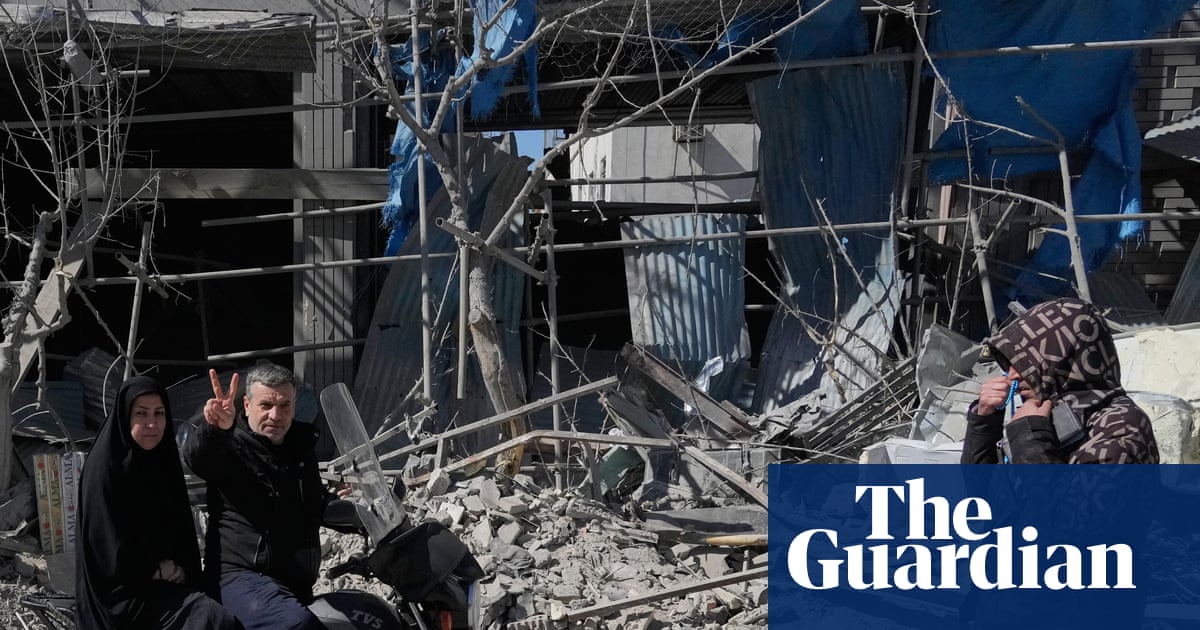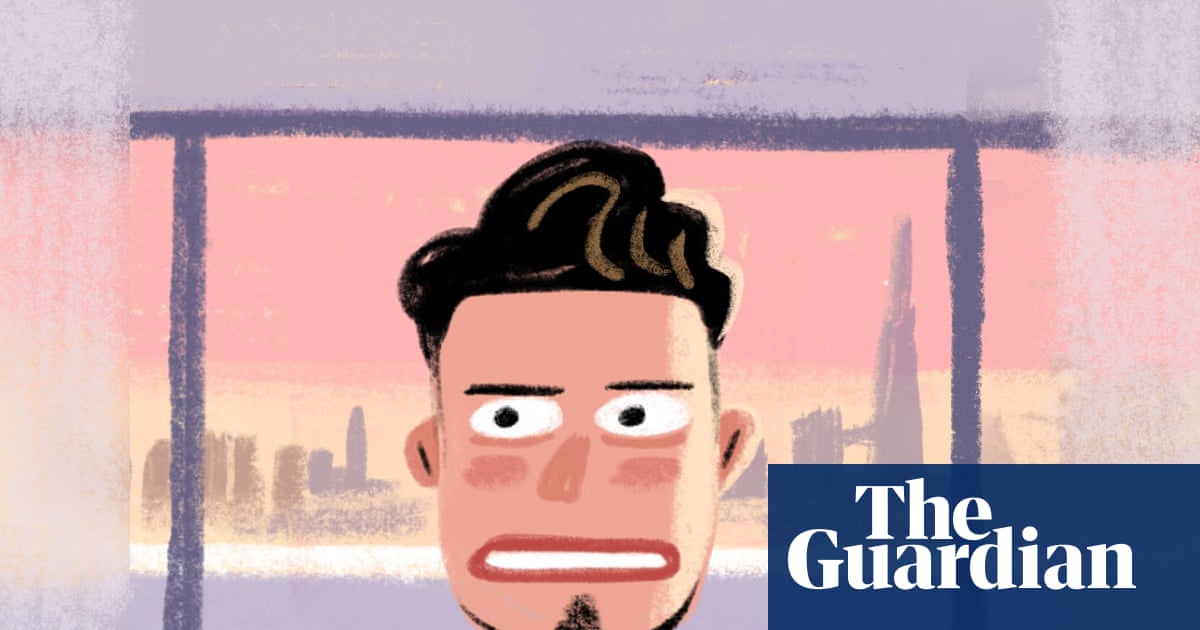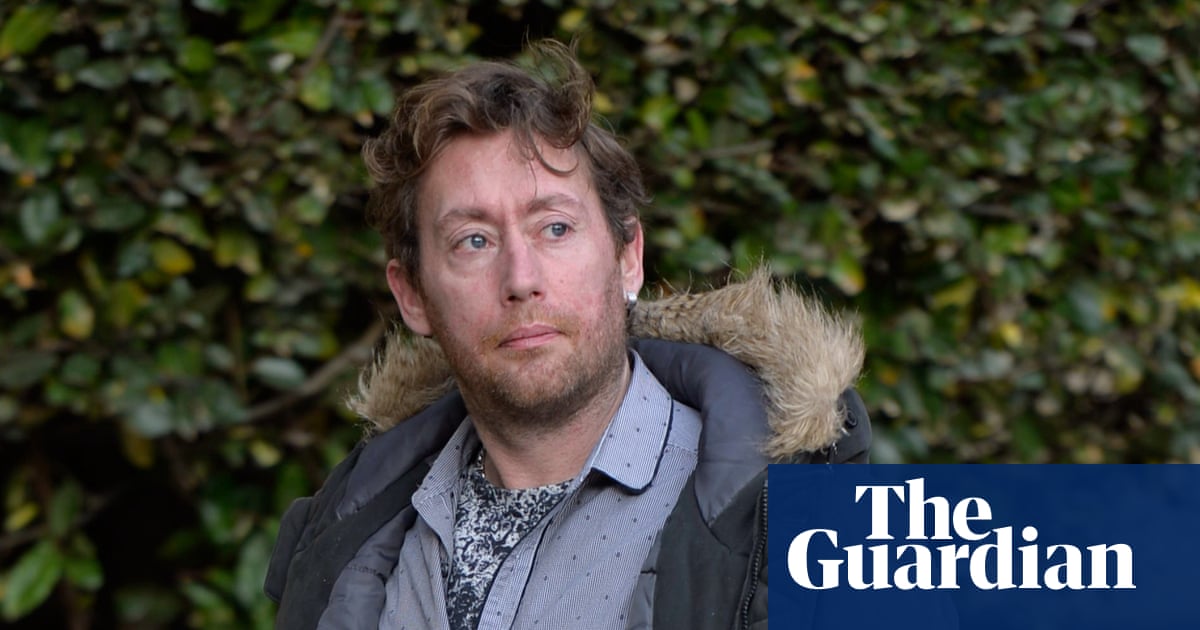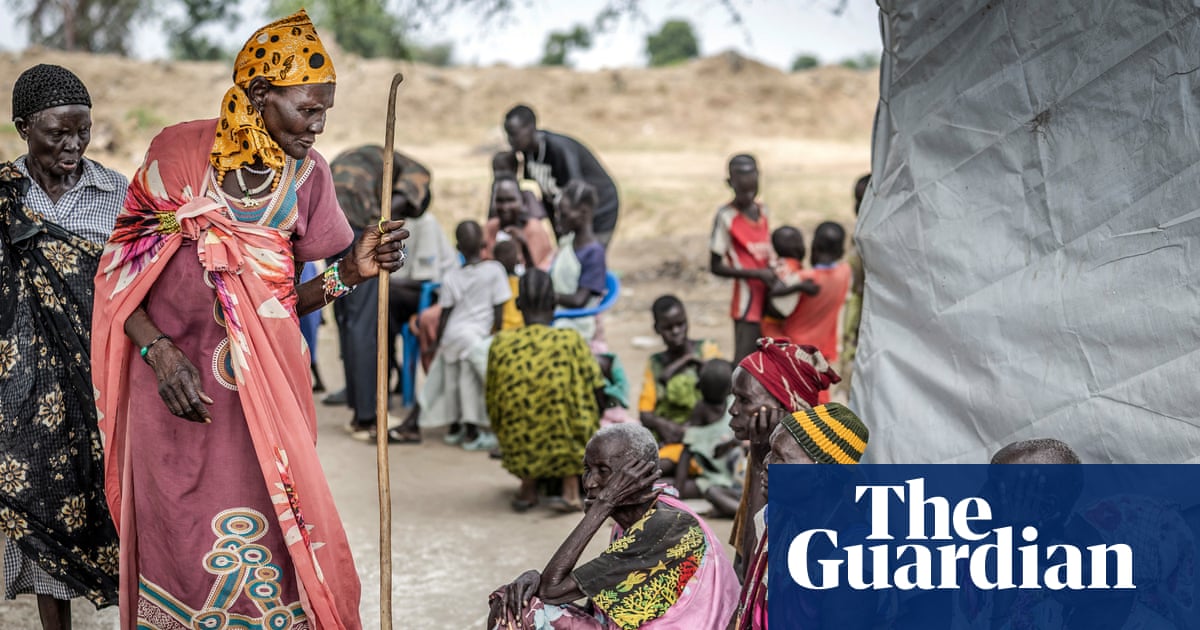Kiran Desai
The Loneliness of Sonia and Sunny
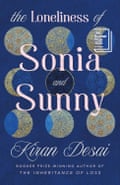
When we emptied my father’s flat after his death, a crowd descended. They rushed away the cupboards and chairs, his shirts and socks. Ragpickers took the rusted appliances. A young woman, the guitar. I remember my father practising Greensleeves over and over. Or did I make that up? It was raining, but my eyes stayed dry. No time for tears – that’s how fast an empire is dismantled. Another landscape gone.
I was already writing about loneliness, about Sonia and Sunny, who meet on the night train to their respective grandparents’ homes, journeying into their past – the past being a kind of home to us all. I was already sensing the restorative depth of their bond, as well as its fragility.
Sonia and Sunny’s relationship unfolds over years and continents – across the United States, Italy, Mexico, India. As they meet and part, negotiating a world without a centre, I wrote about the rifts between nations, between races, genders, religions, all as a kind of loneliness. I wrote about the spaces where news stories disconcertingly changed form, where people made unknowable creatures of themselves. And about shadowlands occupied by phantoms and nightmares that anticipated that a dark undercurrent of history might at any moment explode into renewed violence. I wrote about longing for the vanishing natural world, the magical creatures that forests and oceans once concealed. But I was also interested in loneliness shifting shape into a quiet that is peace after the war is over. A sought-out solitude during a time of transformation. An exquisite artistic loneliness. A discovery of the dignity and privacy of one’s individual being.
Everything I experienced during the years of writing was swept into the river of this book – diaries, newspaper articles – and, at one point, my book lay in pieces and I struggled to hold it together. Wherever I went, my ungainly tome came along, weighing down my luggage. I lugged it in market bags, to be mailed from various locations to my home in New York City, which was filling up with paper.
Then a wondrous coincidence happened (in my experience life always gives you what you need to write your book). The Italian artist, Francesco Clemente, who has worked in India for decades, asked me to write an introduction to an exhibition of his paintings, a meditative and mystical series that powerfully conjured India. His watercolours were in constant flux, suspended between wakefulness and dream. As a gift, he sent me one of his paintings, a demon god without a face. It might have come out of a primeval forest. In this faceless, eyeless deity that I kept beside my writing table, I found the visual symbol I needed to unite the many stories, to think of them in terms of who is in whose purview, who is captured and controlled by whose gaze – when it comes to the power divides I mentioned, when it comes to journalism, when it comes to art, when it comes to love. The unseen world, the shadow world, together with the plot of Sonia and Sunny’s long unresolved romance, together became The Loneliness of Sonia and Sunny.
Ben Markovits
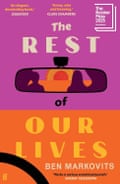
It started with the opening lines, about a man whose wife had an affair when the kids were small. I was working on something else at the time, but I wrote the first few pages one afternoon and then put them aside. Maybe a year later, I had another look. My own kids were getting older and I wanted to write about a certain period of family life coming to an end. Those opening pages seemed like a way in: a guy drops his daughter at university and instead of going home afterward, keeps driving.
There were other things about the idea that interested me. The fact that it wasn’t the man who had the affair; also, his feeling that, I haven’t done anything wrong, and yet here I am. The last sentence I’d written said something like: even when things smoothed over, the best I could claim was a C- marriage, which makes it hard to score much higher than a B overall on the rest of your life. This seems reasonable enough but also clearly the wrong way of thinking about it, and I thought that tension might make a good basis for a novel.
Meanwhile, odd medical stuff had started happening to me: sudden exhaustion while jogging, random head rushes, a swollen face in the morning. My GP couldn’t find anything, but I put these symptoms in the book as another symbol of middle age, the gradual decline that you can’t quite understand. By the time I finished the first draft, both Tom, my narrator, and I knew what we had, and I was going through chemo. Obviously this shaped the book – not just the plot but how I felt about the story. My original idea was to leave Tom completely abandoned at the end, but the more I wrote, and the sicker I got, the less that made sense. Being sick focuses a lot of attention on you; it also changes how people feel about you, if only temporarily.
One of the problems of road trip novels is that your hero is usually running away from the source of the story: in this case, an unhappy marriage. But it occurred to me that I often find it easier to talk to other people in my head when they’re not around – you keep the conversation going, sometimes more honestly and lovingly than you can in their presence. In other words, even though Tom was driving away from his wife, this could still be a novel about reconciling themselves, if not to each other then to the next stage of their lives, which in one way or another they both have to face.
Susan Choi

I recently saw Eleanor Catton ask Sarah Moss, of her latest work: “What is the earliest ancestor of this book?” I thought this was such a great question because it gets at how the genesis of a book can sometimes take place long before any actual writing, or even recognition that there might one day be writing, takes place. The earliest, prehistoric, fish-that-still-hasn’t-grown-legs ancestor of this book is a childhood trip I took to Japan with my parents in the late 1970s. I had never been out of the US, and Japan at that time was hardly westernised as it is now, so the culture shock was profound. I never forgot that trip, and a long time later when I’d started writing I wished I could write about it, but although the trip had been life-changing for me, nothing had happened that would seize the interest of a reader.
Jump forward two decades, and I’m leaning against the kitchen counter in my first New York City apartment, reading my housemate’s New York Times. “Defector’s tale reminds Japan of a lost girl” catches my eye. I still haven’t published my first book, let alone learned any writerly habits such as paying attention to possible ideas or even making note of them. The article kept my attention from start to finish. It was about a Japanese schoolgirl who had vanished into thin air while walking home from badminton practice. Her disappearance had taken place the year before my family’s time in Japan, and she’d been just a handful of years older than me. These weren’t particularly remarkable coincidences, but they kept her in my mind.
Jump forward another two decades plus, and I’m sitting on my back deck gazing into the unusually clear spring sky, reading Dickens, which seems very fitting somehow for the terrifying pandemic that has upended life around the globe, and trying to work out whether my idea – to write about that dreamily recalled Japan of my childhood, but from the point of view of a very different child, one subjected to catastrophe – could possibly work. Whether out of perversity or as a sort of warding-off of misfortune, I often find myself imagining something familiar – like my own childhood journey – fed through a fantasy machine of worst-case scenarios, so that the old familiar material comes out the other side warped beyond recognition. Could I hurl thunderbolts of the extraordinary on to a childhood landscape of the ordinary? The actual thunderbolt I was considering seemed almost too thunderous for fiction, and I got stuck again. “This is too outlandish,” I discouraged myself. I decided to cheat, and write about my young protagonist post-thunderbolt, without owning up to what the thunderbolt had been. (This is a great hack for when you’re stuck while writing fiction: skip ahead.) The resulting short story, Flashlight, came out in late 2020. After that, I was committed – I really had no choice but to go through with the thunderbolt, the result being Flashlight the book.
Andrew Miller
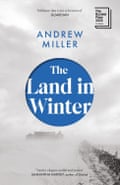
The origins of a novel are quickly covered over. Rule of thumb says it started months or even years before you think it did. The new idea, prodded, looks a lot like an older idea you liked but didn’t know what to do with. Perhaps it was weather that came first, something visual, a landscape blurred by snowfall. Then, around that image, or rising out of it, a time and place: 1962, a village outside Bristol, the village never named but reconstructed from my memories of where I spent the first years of my life. And somewhere inside this welling up of images and possibilities, inhabiting them as a kind of armature, an anecdote of my mother’s, a very bare story about the day she and my doctor father ran across the field to an emergency at the farmhouse on the other side.
Pretty much from the off, I had a good feeling about the book, about the writing. The previous novel had been an anxious struggle. Now, with The Land in Winter, I felt suddenly liberated. I didn’t worry much about themes. As long as there was a good forward energy, I was happy just to follow it. One of my guiding intentions – a central one – was to let my four main characters have the freedom to see out their parts in whatever way was right for them. No one was going to be shoved around by plot. As ever, there were moments of doubt – a book without a crisis is one I’d start to worry about – but the writing was often joyful and there are no bite marks in the manuscript (there are in some).
In the summer of 2023 I sent it off. I thought I was finished, more or less, but my editor, with a cooler eye, could see there was still much to be done. Things I’d believed were present in the manuscript had not been visible to him at all. So began a year of intensive rewrites. Not to tidy up – I wanted the book to keep a certain wildness, even a certain oddness – but to make it a little more shapely, and perhaps just to understand it better, its preoccupation with how big our lives might be, and what a bigger life might mean, the consequences of that. Handing it over a second time, I had the snow-blindness most writers experience at the end of a long project. It’s hard to know any more what you’ve made. The affirmations of this spring and summer have been deeply reassuring because they tell me that what I felt about the work – that freedom and that joy – was not delusional. You cannot write if you do not trust your intuition.
Katie Kitamura
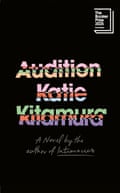
Audition has a simple premise. The narrator is an actress in rehearsal for a difficult new play. She is successful, happily married, and settled in her life. Then, a young man approaches her and tells her that he believes he is her son. From that point, two narratives unfurl – two versions of events, two distinct realities. In one, the young man is a stranger. In the other, he is in fact her son.
I can pinpoint the origins of the novel quite precisely. Some years ago, I came upon a headline, reading: “A stranger told me he was my son.” I immediately knew this was material I wanted to work with in some way. I was careful not to click on the link and read the article, in part because I wanted to sit with the strangeness of the headline. On the one hand, I was fascinated by the idea that a single encounter could change everything you understand about yourself and your place in the world.
But I was also interested in the illogical nature of the headline. The two terms, “a stranger” and “my son”, seemed diametrically opposed, even mutually exclusive. I didn’t want the mystery of that opposition to be resolved. The article would, I felt sure, contain a perfectly plausible explanation for the mysterious headline. Perhaps the author of the article had placed a child into adoption. Or perhaps the stranger in question had a mental health disorder.
Neither of those options felt particularly satisfying to me as a novelist. In them, all the wonderful mystery of the headline seemed to drain away. Some time later, I went for a walk with a friend and I told her about the headline – about how beguiling I found it, and how I wasn’t entirely sure how to enter into the world that I could sense hovering just behind the headline. She asked me to repeat the sentence, and then she said: “But that’s just parenting. Every time my son comes home from college, it’s like a stranger has walked into the apartment.”
After that conversation with my friend, I had a sense of what I wanted to try to do in the novel. I wanted to write about how many universal experiences – of love, of motherhood – can feel like two mutually exclusive things at the time. I never clicked on that headline, but now I wonder if the story behind it was not a story about adoption, or about delusion, or about a hoax of some kind – all ideas that I had pondered and played around with. I wonder if instead it told a very human and very simple story about the long process through which a child must necessarily grow up to become a stranger to their own parents – about both the satisfactions and the devastations of that experience.
David Szalay

Flesh was conceived in the shadow of failure. In the autumn of 2020 I abandoned a novel I had been working on for nearly four years. This was obviously not an easy decision. It represented the writing-off of a huge investment of time, hope, energy and emotion. A lot of work had been done. I had written over 100,000 words. But by that autumn I had long had the sense that the thing wasn’t working. The struggle to make it work was becoming anguished. It was with a feeling of exhausted relief, more than anything else, that I finally just binned it, resolving to have a good night’s sleep, and start again the next morning with a blank sheet of paper, or at least a new Word document.
At that point I was about a year away from the date by which my publishers and I had agreed that I would deliver a new book. I had, in other words, one year or slightly less in which to write a novel from scratch. The pressure of that did get to me. After a few weeks of staring at a blank screen, at a blinking cursor, it was obvious that I would need to ask for more time, and I did.
It wasn’t a problem.
Still, I was dogged by self-doubt. Dogged by the feeling that while it might be sort of OK to abandon one half-finished novel, it would be disastrous – for me, psychologically – to abandon two in succession. I wasn’t sleeping well. I was becoming depressed. The greatest difficulty, in a way, was just deciding what to write about. What specific story to tell. Where to start. In a way, I wished that someone would tell me what to do, what to write about. There was no one to do that, though. I was on my own, in what felt quite a lot like an anxiety dream.
I made myself start with a few simple ideas. (One of the main problems with my previous effort was that it had been too intricate, too fiddly.) I decided that I would write something that was partly English and partly Hungarian. And that the story would somehow express the feeling I had that our existence is a physical experience before it is anything else, that all of its other aspects proceed from that physicality, and of course finally return to it too when we ourselves return to being what Auden memorably called “irresponsible matter”.
Those two ideas, if they can even be called that, were the fixed points with which I started the new work. They were the seed from which it grew.

 3 months ago
101
3 months ago
101




